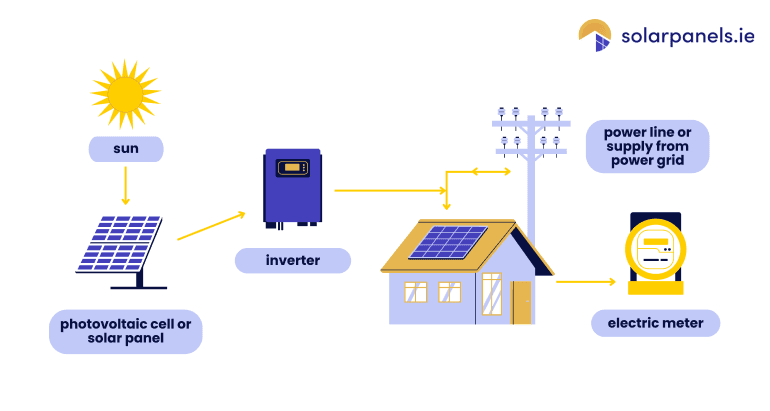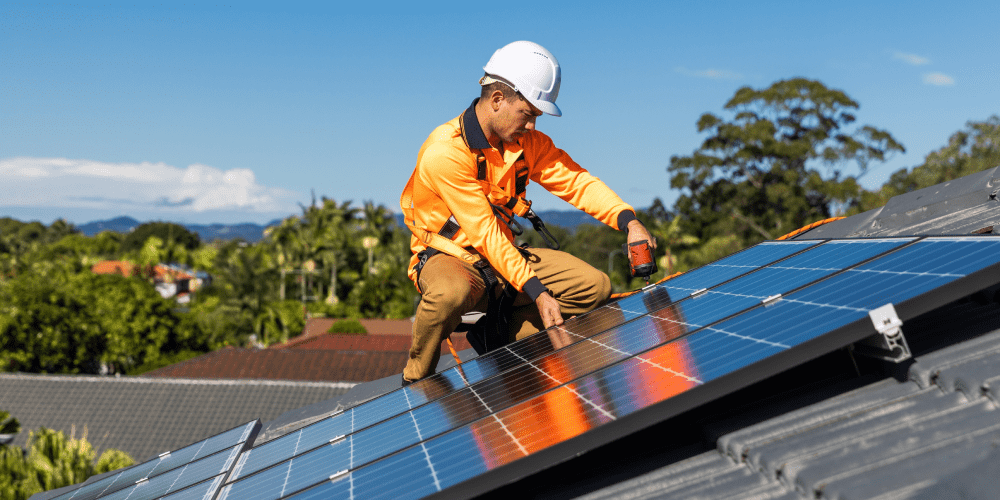Solar panels explained: How they work and their benefits for your home and business
Solar panels have emerged as a key player in the renewable energy landscape as environmental awareness grows and the demand for sustainable energy solutions rises. This article explains what solar panels are, how they work, and why investing in them is a smart choice for both residential and commercial properties.
What are solar panels?
Solar panels, also known as photovoltaic (PV) panels, are devices that convert sunlight into electricity. They are composed of many solar cells made from semiconductor materials, typically silicon. When sunlight hits these cells, it triggers a process known as the photovoltaic effect, which generates electric current.

How solar panels work can be understood in three simple steps:
- Photovoltaic Effect: When solar radiation hits the solar cells in a panel, it excites the electrons in the semiconductor material. This excitation causes the electrons to move, creating an electric current.
- DC to AC Conversion: The electric current generated by the solar cells is direct current (DC). Since most homes and businesses use alternating current (AC), this DC electricity needs to be converted. This is achieved using an inverter, which converts DC into AC electricity.
- Power Distribution: The converted AC electricity is then used to power electrical appliances, lights, and other devices. Any excess electricity can be stored in solar batteries or fed back into the grid, often earning credits from the utility company in a process known as net metering.
How much electricity can a solar panel produce in Ireland?
The amount of electricity a solar panel can produce in Ireland depends on several factors, including the panel's size, efficiency, orientation, and local weather conditions.
On average, Ireland receives about 900-1200 kWh of solar energy per square meter per year. Modern solar panels typically have an efficiency of 15% to 22%, and a standard solar panel size is around 1.6 square meters with a power rating of 250 to 400 watts.
Considering an average irradiance of and panel efficiency, a typical panel can receive about 1680 kWh of solar energy annually. These estimates can vary based on the exact location in Ireland, the orientation and tilt of the solar panels, and local weather conditions.
Benefits of installing solar panels
Investing in solar panels offers numerous advantages. Firstly, solar panels can significantly reduce electricity bills. With the right system, homeowners and businesses can generate enough power to meet their needs, leading to substantial savings over time.
By generating your own electricity, you are less vulnerable to energy price fluctuations and supply interruptions.
Additionally, solar panels contribute to the green energy shift by producing clean energy with no emissions. Solar energy is a renewable energy source, meaning that the use of the sun for power will not deplete resources like traditional coal, oil, and gas.
By harnessing the power of the sun, we reduce our reliance on fossil fuels and decrease greenhouse gas emissions. In turn, this means that solar energy helps reduce air pollution and climate change.
Finally, having a solar panel system installed can increase your property value. Homes and businesses equipped with solar panels often see an increase in the value of their home or building, as potential buyers recognize the long-term cost savings and environmental benefits.
The future of solar energy
Solar panels represent a powerful and efficient way to harness renewable energy. By converting sunlight into electricity, they offer a sustainable solution to our future energy needs, reduce environmental impact, and provide significant cost savings.
At Solarpanels.ie, we are dedicated to helping you find the right solar panel installer to help you implement solar energy solutions tailored to your specific needs. Embrace the power of solar energy and take a step towards a greener, more sustainable future.


